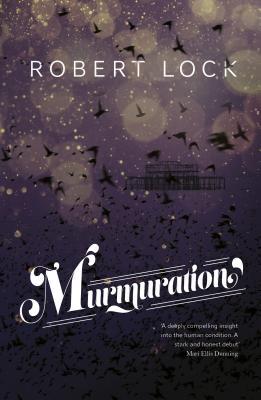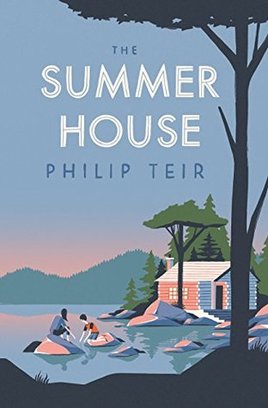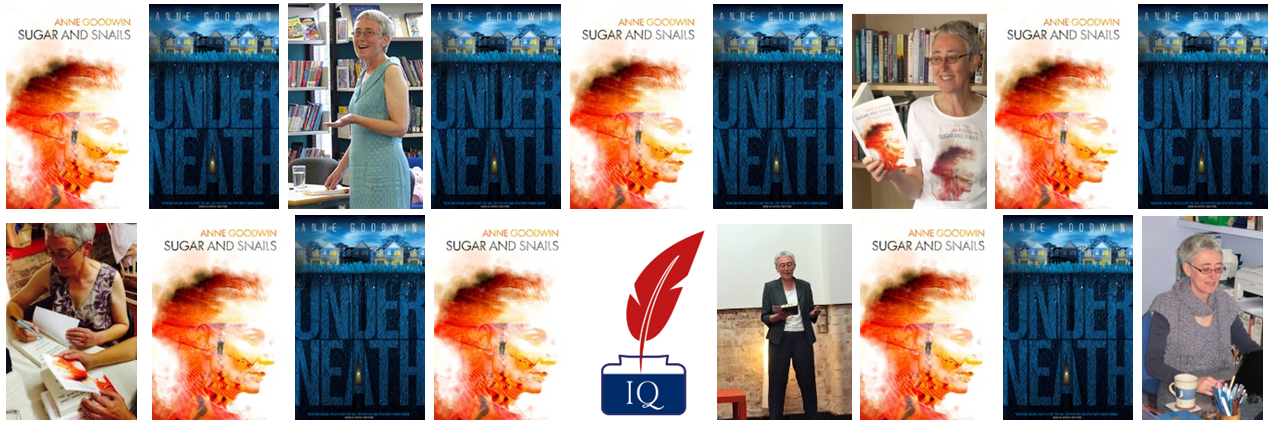Murmuration by Robert Lock
Of course the two men never meet but, in addition to the similarities in their circumstances, the other characters connect their stories across the years. Mickey Braithwaite continues as the deckchair attendant into his nineties, having distinguished himself as a volunteer in the Observer Corps in the Second World War when a murmuration of starlings alerted him to an impending bomb drop over the town. Bella – a.k.a. Madame Kaminska – is a fortune teller who takes part in the pier centenary celebrations during the resort’s heyday in the 1960s. Colin Draper is an archivist with the council who suspects a miscarriage of justice in relation to the case of Georgie Parr.
The story unfolding chronologically, if I sometimes wondered where it was leading me, the engaging characters and exquisite period detail kept me hooked to the end. Overall, I found Robert Lock’s debut novel an original and entertaining chronicle of scandal, show business and masculinity and the development and decline of the English seaside resort. Thanks to Legend Press for my advance proof copy. For other novels with a similar setting, see Owl Song at Dawn and Death and the Seaside.
The Summer House by Philip Teir translated by Tiina Nunnally
Despite some underlying tensions – Julia has never managed to escape her mother’s diktats, while Erik has just lost his job but isn’t yet ready to admit it – I found the story rather bland until, about a quarter of the way in, they meet their neighbours. Julia is surprised to reconnect with Marika, whom she remembers dominating her childhood summers, although only a year older. Catching up on the intervening years, Julia’s a little embarrassed to admit she’s published her first novel, given that it’s based on their problematic relationship.
Marika’s partner, Chris, is also surprising, the charismatic leader of a breakaway group of environmentalists acknowledging the inevitability of climate change, with a bit of free love, drugs and pagan ritual thrown into the mix. Along with a couple of ageing hippies and a few others, is Marika and Chris’s thirteen-year-old son, Leo. Initially shy of each other Alice and Leo soon pair off, leaving Anton feeling somewhat abandoned.
The jealousy of the less favoured sibling impacts also on Erik when his brother arrives from backpacking in Vietnam – a restless character whose passion for travel reminds me of Steve in my second novel, Underneath – and takes up with another neighbour, Kati, a solitary figure who declines other invitations to socialise. Meanwhile Marika is struggling with Chris’s infidelity, much like the members of the commune in The Tyranny of Lost Things.
Just when I’d decided the novel was about triangular relationships and jealousy, another theme took hold. In Chris’s irresponsibility (failing to provide secure boundaries for his son) as in Erik’s increased alcohol consumption as a way avoiding thinking about his redundancy, along with the wider social issues of climate change and Finland’s economic slump, was this a novel about denial?
Although Chris himself advocates mourning as the appropriate response to climate change, in general, certainly in the Western world (and I’m writing this in a heatwave) we’re collectively in denial. Meanwhile, Kati is actively grieving for a loss that becomes apparent towards the end of the novel. And aren’t holidays themselves a form of denial by turning our backs on ordinary life?
When some secrets come to light at the same time as the summerhouse cellar is flooded with brown stinking water, it seems a clear message from the author that we should read the novel metaphorically, although a pity he underlines this by having Julia “thinking that the strange smell down here was almost blatantly symbolic and Freudian” (p241). Or it could be – as is suggested by the last line – that the author is teasing the reader into looking for a deeper meaning that isn’t there.
Or perhaps it’s just me, trying to squeeze it into a recognisable shape following my recent post about the limitations of the hero’s journey structure. Either way, I did enjoy Philip Teir’s second novel, although perhaps not as much as his debut, The Winter War. Thanks to Serpent’s Tail for my review copy.
For other posts on holiday reading, see What constitutes a holiday read? and Two “novel” perspectives on tourism.
| Incidentally, Kati in The Summer House is a therapist on sick leave who will (probably) get a mention in my next post for Counsellors’ Cafe Magazine. You might also like my most recent post on Famous therapists in fiction. |

























 RSS Feed
RSS Feed





















